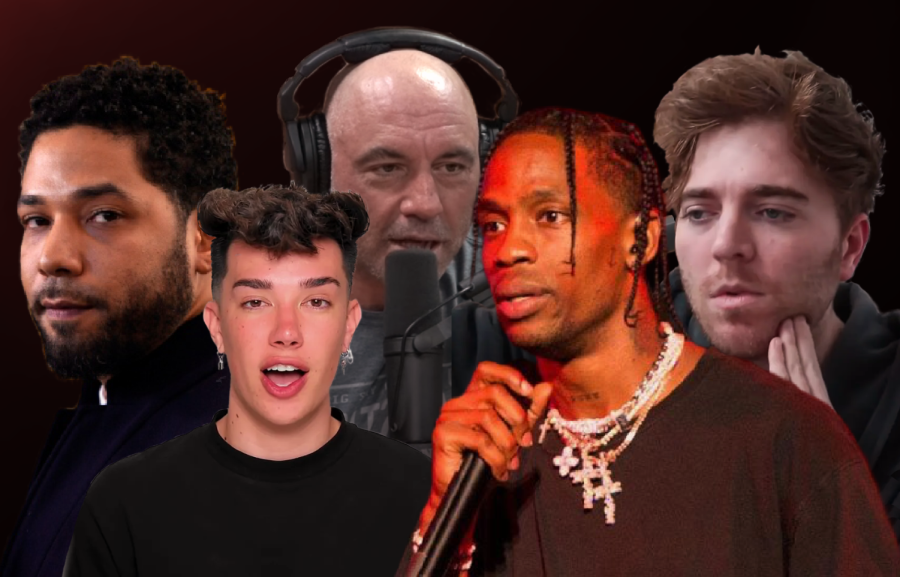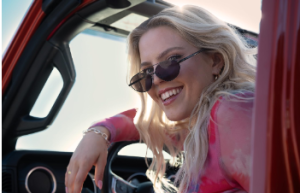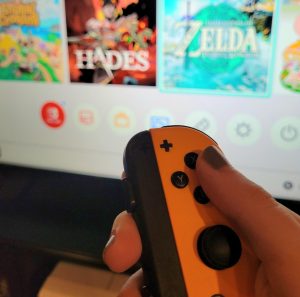Toxic Celebrities
February 3, 2022
Human error is inevitable—that’s a fact that everyone knows, but there is a fine line between mishap and meltdown. However, the consequences for repetitive mistakes increase tenfold when it’s your job to keep the public’s eye on you.
Whether through Twitter, Tiktok or the Times, Hollywood celebrities are beginning to see the massive impact their actions have on society. Well, some.
Cancel culture can only do so much to someone whose career is littered with criticisms and nitpicks, rendering it a temporary solution.
Toxic, dangerous and even criminal celebrities need to learn where the boundary is, and that what they do affects others. Fans follow their example and mimic the heinous behavior that’s being normalized, while growing ever spiteful of those trying to bring them back to the harsh reality: their idol never lived up to the title.
A prime example would be the infamous case of Jussie Smollett. The black actor was, in his prime, on Fox’s show Empire and an R&B singer. By now, however, almost everyone’s heard of the scandal that got him dropped from the show.
They’ve heard of the two men hurling racist and homophobic slurs at the gay actor. They’ve heard of the outrage online from his supporters, condemning all Trump supporters to the same chauvinist profile as the actor’s attackers. And then, more recently, they’ve heard of his conviction on five counts of disorderly conduct, for staging the entire debacle.
His actions, while not only criminal, sparked a nationwide divide that left the country more politically disjointed than ever. He normalized the vicious hate shared by people across the political spectrum and managed to perpetuate stereotypes about each and every one of them. One man ended up revealing two bitter nations on the same soil.
Another man, this one known more so for his fanatic podcast, has caused a similar effect. Throughout the pandemic, many people turned to Netflix, YouTube and Spotify to make their living situation a bit more bearable. Why sit in solitude when you could at least have someone talking in the background?
“The Joe Rogan Experience” fit that niche for his audience. While Spotify hasn’t released Rogan’s follower count on the platform, Twitter analytics have shown that guests on his show can have up to 18,000 new followers after their discussion.
But Rogan’s podcast has grown to be known for more fiction than fact. As COVID-19 cases were on the rise and families saw their loved ones pass, his podcast derailed into conspiracy theories and misinformation. The most notable instance of this was his promotion and defense of ivermectin, a treatment for parasitic worms and head lice, as an effective treatment to COVID-19.
Vendors saw the drug’s purchase tripling in some places, and now just Googling the drug leads you to a slew of articles telling the wary public one thing—not to take the deworming medicine to treat the disease.
Between Jan. 1 and Sept. 20 of 2021, there was a 212% increase in ivermectin exposure cases reported to the National Poison Data System, with people not only being hospitalized, but taken into intensive care units.
Rogan has found a way to effectively spread misinformation, spurring a movement leading to the hospitalization of dozens of people and spark a division in a time where the country needs unity. His lies have spread, turning people against one another.
Then there’s Travis Scott. Yes—by now, almost all support and adoration he once had have dissipated. The Astroworld Festival will certainly go down in infamy, and the lives lost will be remembered.
But let’s not forget that Scott hasn’t always promoted safety to his concert-goers. In fact, he has quite the history of dangerous shows. Even back in 2015, the rapper was being charged for reckless conduct after rousing the crowd at Lollapalooza to climb over barricades onto the stage.
Scott has encouraged fans to denounce events’ security. Scott has encouraged fans to engage in harmful behavior, with one show at Terminal 5 in New York City leading to a man becoming paralyzed. And yet, Scott wasn’t held accountable until lives were lost.
There’s a continuous cycle of problematic behavior being rewarded by fans. But it shouldn’t be suddenly dropped when a figure reaches their limit, and we shouldn’t be appalled when public figures with a history of troublesome behavior reach rock bottom.
Will we only stop supporting Shane Dawson when an official police report is put on file for his hate speech, pedophilia, or bestiality? Will we only stop praising James Charles when another 15 people come forward with grooming allegations? Will we only stop following people like Joe Rogan when the dozens of hospitalizations turn into dozens of deaths?
As I said, cancel culture is temporary, and every person I’ve listed has faced backlash. But time and time again, we see “canceled” celebrities being welcomed back into the limelight after their PR team finds a clever distraction for the public.
People need to start prioritizing action over reaction; in a world where one is innocent until proven guilty, we cannot keep enabling those who are truly guilty to keep slipping back under the radar.
Even when apologies are issued, it should be quality over quantity. Just because a celebrity apologizes more, doesn’t always mean they’re taking the proper actions to educate themselves on how they affect people.
It’s up to us to hold celebrities accountable. Just because we love what we see doesn’t make someone a squeaky-clean effigy.








